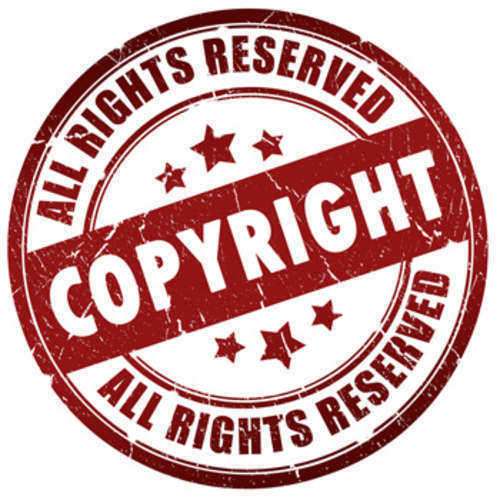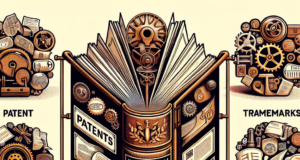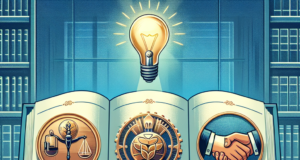Revolutionary Changes Ahead: Unveiling the Latest Creative Commons Updates
 In an era where digital content creation and sharing have become integral to our daily lives, the role of Creative Commons (CC) has never been more crucial. As a global nonprofit organization, Creative Commons provides free, legally sound tools that enable creators to share their work while retaining certain rights. Recent updates to its licenses and policies promise to revolutionize the way content is shared and utilized across various platforms. This article delves into the significance of these changes, their implications for content creators and users, and the future of open access and innovation.
In an era where digital content creation and sharing have become integral to our daily lives, the role of Creative Commons (CC) has never been more crucial. As a global nonprofit organization, Creative Commons provides free, legally sound tools that enable creators to share their work while retaining certain rights. Recent updates to its licenses and policies promise to revolutionize the way content is shared and utilized across various platforms. This article delves into the significance of these changes, their implications for content creators and users, and the future of open access and innovation.
Understanding the Significance of Creative Commons in the Digital Age
Creative Commons has emerged as a vital player in the digital landscape, facilitating a culture of sharing and collaboration. In a world inundated with information, CC licenses empower creators by allowing them to specify how their works can be used, modified, and distributed. This flexibility not only fosters creativity but also encourages the responsible use of intellectual property. As digital content proliferates, the need for clear and accessible licensing options becomes paramount, making Creative Commons an essential tool for educators, artists, researchers, and the general public. By promoting open access to knowledge and culture, Creative Commons plays a pivotal role in democratizing information and supporting innovation.
Overview of Recent Updates to Creative Commons Licenses and Policies
In response to the evolving needs of the digital community, Creative Commons has recently unveiled significant updates to its licenses and policies. These changes, which include enhancements to existing licenses and the introduction of new features, aim to address the complexities of modern content sharing. The updates reflect a commitment to inclusivity, ensuring that the licenses are adaptable to various cultural and legal contexts. Additionally, the organization has streamlined its licensing process, making it easier for creators to select the appropriate license for their work. These updates are not merely cosmetic; they represent a strategic shift towards a more user-friendly and globally relevant framework for sharing creative content.
Key Features of the Latest Creative Commons License Versions Explained
The latest versions of Creative Commons licenses introduce several key features designed to enhance usability and clarity. One notable addition is the improved compatibility with other licensing frameworks, allowing for greater interoperability between different types of content. Furthermore, the new licenses include clearer language and visual aids to help users better understand their rights and obligations. The introduction of a “No Derivatives” option has also been refined, providing creators with more nuanced control over how their works can be adapted. These features not only simplify the licensing process but also empower creators to make informed decisions about their intellectual property, ultimately fostering a more vibrant creative ecosystem.
Implications of Creative Commons Changes for Content Creators and Users
The recent updates to Creative Commons licenses carry significant implications for both content creators and users. For creators, the enhanced clarity and flexibility of the licenses mean they can better protect their rights while still encouraging sharing and collaboration. This balance is crucial in a digital environment where the lines between creation and consumption are increasingly blurred. For users, the updates provide greater assurance that they can engage with creative works without inadvertently infringing on copyright. As a result, the changes are likely to lead to an increase in the use of Creative Commons-licensed content, promoting a culture of respect for intellectual property and encouraging more individuals to contribute to the creative commons.
How the New Updates Enhance Collaboration and Sharing in Creative Works
The latest updates to Creative Commons licenses are designed to enhance collaboration and sharing among creators and users alike. By simplifying the licensing process and providing clearer guidelines, these changes encourage more individuals to share their works openly. The improved compatibility with other licensing frameworks also facilitates collaboration across different platforms and communities, breaking down barriers that previously hindered creative partnerships. As a result, the updates are expected to foster a more interconnected creative landscape, where artists, educators, and researchers can easily collaborate, remix, and build upon each other’s work, ultimately leading to richer and more diverse creative outputs.
Future Prospects: What the Latest Changes Mean for Open Access and Innovation
Looking ahead, the recent changes to Creative Commons licenses signal a promising future for open access and innovation. As more creators adopt these updated licenses, the potential for collaborative projects and shared knowledge will expand exponentially. This shift could lead to a surge in innovative solutions to global challenges, as diverse perspectives and expertise come together in the open-access space. Moreover, the emphasis on inclusivity and adaptability in the new licenses suggests that Creative Commons is poised to remain at the forefront of the open culture movement. By continuing to evolve in response to the needs of the digital community, Creative Commons is not only enhancing the sharing of creative works but also paving the way for a more equitable and innovative future.
In conclusion, the recent updates to Creative Commons licenses and policies represent a significant advancement in the realm of digital content sharing. By prioritizing clarity, flexibility, and collaboration, these changes empower creators and users alike, fostering a culture of respect for intellectual property and encouraging innovation. As we move forward in this digital age, the role of Creative Commons will undoubtedly continue to be pivotal in shaping the future of open access and creative collaboration, ensuring that the benefits of shared knowledge and culture are accessible to all.


















